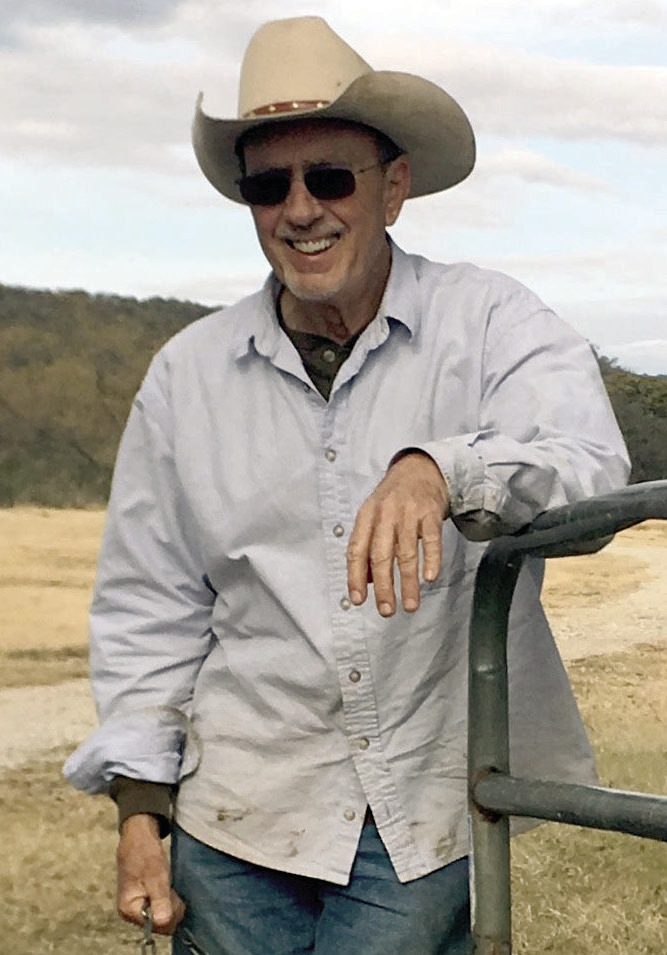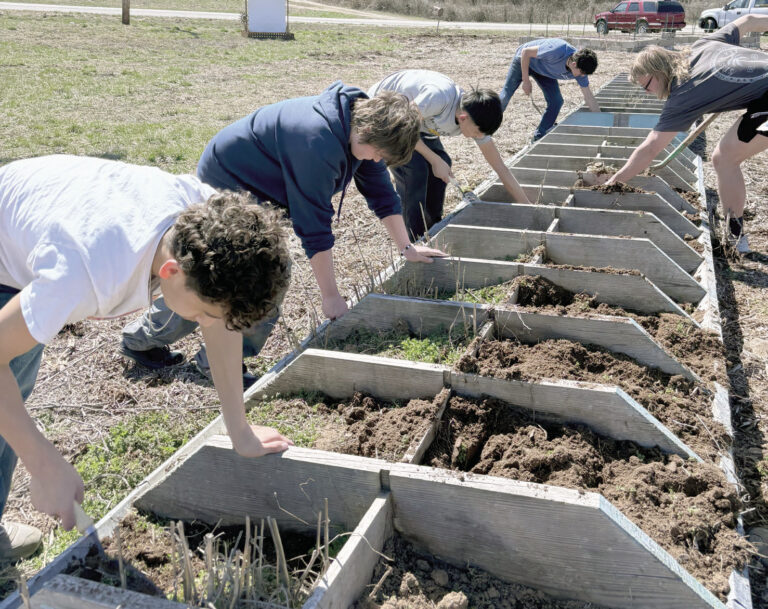An Exeter native has released a new novel, ‘The St. Louis Enlows,’ a nostalgic story of a wealthy family in post-war St. Louis who insist they are ordinary in every other way.
The novel, written by Larry Arnold, is being featured soon in Senior Lifestyles Magazine and has been selected as a feature at Dunaway Books, the historic bookstore and network in St. Louis.
Arnold was born in Exeter and has many relatives still in the area, including Red Edens, Bill Chappell, and his late uncle Doc Edens, former city marshal.
Arnold was a federal law enforcement officer, then a business owner and rancher in Texas. He has been married to his wife, Vicki, for over 40 years, and they have three grown sons and six grandchildren, all of them living close by.
He is a graduate of the University of Tulsa and a veteran having served overseas in the U.S. Army.
Arnold was born amidst the beautiful Missouri Ozarks, then raised in the wonderful small town of Sand Springs, Oklahoma.
“Having two hometowns, Sand Springs and the historic little village of Cassville, Missouri, has made for a streak of nostalgia I can never satisfy,’ he said.
Writing about people’s instinctive desire to ‘come home’ to the places and experiences of their youth and dreams trend through his books. Those homecomings make for stories of real people dealing with their triumphs, loves, and tragedies much like those experienced by himself and the readers of his work.
Arnold provided the following synopsis for ‘The St. Louis Enlows’: The Enlows were a wealthy family whose members insisted they were ordinary in all other ways. “We were an ordinary family that happened to live in extraordinary times.” Their story is set in a post-war inner-city neighborhood of St. Louis, Missouri called Tower Grove. That historic neighborhood, which still exists today is where the immigrant family from Wales experienced their triumphs, sorrows, and defeats…all in the new country…their beloved America.
Anna Preston Enlow advised against her only son leaving college to enlist in the military in 1943. She hoped the war would be over before he graduated. But Amel’s father, Jules Enlow, felt he could no longer forbid his son from serving his country. Jules’ decision that went against Anna’s advice created an abyss between the couple when Amel was killed shortly after joining his unit in Europe. That emotional distance between husband and wife resulted in each blaming the other for their son’s death. Anna blamed Jules for giving his permission to enlist, and Jules blamed Anna—for blaming him. But they had to carry on. They still had two young daughters, sixteen-year-old Myra and thirteen- year-old Jane, to care for.
During Jules’ final farewell at the train depot with Amel, he made a promise that would affect the Enlow family for decades. “Son, your place at our table will always be there until you come back to us.” That sacred pledge would be honored and protected by the remaining four Enlow family members. Amel’s place setting was never left at their table collecting dust and being ignored, but always washed and put away with the utmost care. The space reserved for the family’s young prince remained unfilled until the magic of redemption eventually graced the Enlow family.
The Muns family, Gerald and Edith, lived directly behind the Enlows. Before the war, the two couples enjoyed a close friendship and often shared dinners and visits to each other’s homes. Gerald’s son, Ricky, lived with his ex-wife in Springfield. There was one special summer in 1938 when the Muns boy and the Enlow kids became friends. It was when teenaged Ricky made his first and only visit with his dad and stepmother in St. Louis and first met the Enlow family.
That sweet summer of 1938 was filled with movies, baseball, long walks, and private kids-only conversations in the Muns backyard gazebo. There were Saturday cream store visits with Amel’s youngest sister, Jane, and Ricky’s little half-sister, Mary Lou. Ricky also experienced a spark of confused romance involving innocent and awkward adolescent flirtations with Amel’s sister, Myra.
While years later serving in the U.S. Army’s march through Europe, an unconscionable event occurred that would affect the rest of Ricky Muns’ life. Drifting and hitch-hiking throughout the southern US for two years after the war failed to cleanse his conscience of the terrible things he experienced. In 1947, Ricky returned to St., Louis and the Tower Grove neighborhood–the happy and peaceful place he remembered from that capricious summer of 1938. He and the elegant and genteel Myra Enlow would become postwar romantics whose love affair was sweet but restrained by the invisible wounds he brought home from the war. Though Sergeant Muns escaped serious physical injuries during his extensive combat, it was the tender and sympathetic Myra who understood and dealt with his emotional scars.
Like many large midwestern cities, organized crime was often condoned by authorities who were on the mob’s payroll. That dangerous situation was true in St. Louis in the mid to late forties. The success and wealth of The Enlow Company attracted an illegal attempt to take over their business and was typical of the violence and illegality during that time in big cities. The Enlows fought back, and the existence of the company, its employees, and the family was threatened and in jeopardy for years.
Jane Enlows memories are the driving force behind this family story. The youngest of the three Enlow kids, she was the best tree climber in the neighborhood and ‘better than the boys’ at their own games. When speaking to his business tycoon peers, her father, Jules Enlow, would sometimes crudely brag that his headstrong youngest child was his ‘little pisser.’
That crude but loveable nickname pleased Jane throughout her life. The fact that Jules chose her to take over the company at the tender age of twenty-one was a shock to his business tycoon peers. In that day and time, a young woman running a large business was considered an affront to the men and caused Jules’ business associates bushy eyebrows to flutter and their’ patronizing harumphs’ to be loudly growled.
‘The St. Louis Enlows’ is available at multiple online vendors, including Amazon, eBay and Barnes & Noble.



